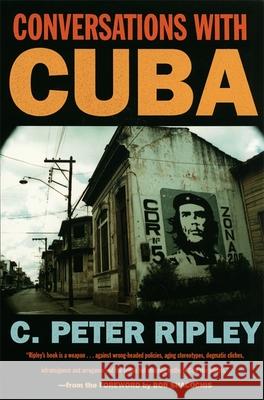Conversations with Cuba » książka
Conversations with Cuba
ISBN-13: 9780820323022 / Angielski / Miękka / 2001 / 280 str.
Here is a fresh story behind this passionate, struggling, frequently discouraged, but always proud country, told by ordinary Cuban citizens--the people who still struggle with a revolution that is far from over. Sparked during his high school and college years by his admiration of the Cuban revolution--the first successful bourgeois revolution of the twentieth century--C. Peter Ripley subsequently developed a fascination with Cuban culture that took him on five illegal trips to the struggling country between 1991 and 1997. During his travels, Ripley visited and revisited the Cuban landscape and its people, closely following the lives of citizens who were deeply influenced by the revolution and its effects. Through his experiences and observations, Ripley taps into the reality behind his long-romanticized perceptions of the Cuban Revolution.
"Conversations with Cuba" takes place during the height of the "special period," the ambiguous name given to the years of hardship following the end of the Soviet Union's vital aid to the country, isolated by the U.S.-led embargo, and preceding Cuba's as yet unrealized revitalization. Ripley guides us on a first-person journey through this bustling economy now reduced to soap shortages, one meal a day, and desperate attempts to locate an economic salvation in foreign tourism. He shows us people with a faith and pride in their nation and its revolutionary ideals that is as frequently conflicted as it is fierce. We come to know Pedro, a plumber and black marketeer; Roberto, who introduces Ripley and his companions to the enforced discrimination behind Cuban tourism; and Neddie, a schoolteacher whose early confidence in the Revolution is later seriously challenged by the harsh realities of the "special period." Ripley's most involved relationship is with Paulo, a college student turned black marketeer who becomes Ripley's guide and friend during his travels. Paulo's discontent with his country and his own circumstances is tested through the course of the book, and, guided in part by his foreign guest, he ultimately experiences a drastic transformation, trading his desire to leave Cuba for a new dedication to his heritage and a persistent hope for Cuba's revolutionary future. These individuals and countless others encountered in Conversations with Cuba reveal a moving portrait of a country and an uncommonly civil society shaped by patria, courage, tenacity, and a simultaneously critical and optimistic belief in their revolution, within an ambivalent reality of tension and change."











